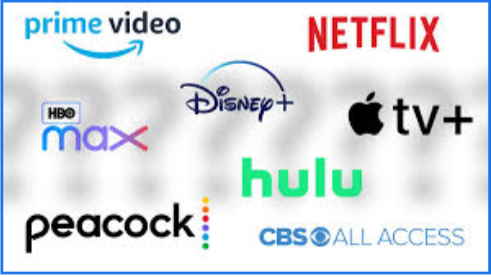Is Exclusivity Killing Customer Freedom? Some Salesian Commentary on the Matter
April 30, 2021
Here’s a relatable scenario: you hear about all these great shows, say Game of Thrones, The Office, Stranger Things, The Mandalorian, and you want to watch them. Here’s the issue, you have neither the money nor the reason to subscribe to fifteen different streaming services to only watch one show on each one. Shows like The Office and Friends are being pulled from Netflix and being plopped into brand new streaming services by the media conglomerates that own them. It was not always like this; streaming was supposed to be an escape from choice and a way to have an all-in-one viewing experience that was cheaper and more convenient than cable. The practice of hogging intellectual properties to gain leverage in the market is not limited to streaming, but it’s also prevalent in food delivery and consumer electronics.
Netflix was originally the place for every show you could think of, and now it is home to the occasional hit new series with a treasure trove of content that aren’t the originals. Now, with Disney, AT&T (owners of HBO, Warner Bros, and Turner Broadcasting), CBSViacom, NBCUniversal, Discovery, as well as other companies wising up to the rise of streaming, they are all creating their own services and monopolizing the content they own the rights to but had been leasing out to other streaming services. 3 years ago, this humble reporter could watch The Avengers, Friends, The Office, and Family Guy on Netflix for $12 a month. Now, he has to pay $50 a month to watch the same exact content. What used to be a consumer-friendly alternative to cable is now being used to squeeze as much money out of people as possible by making people feel as if they are missing out on “the next big show” their friends are talking about. This whole movement is bad for the power the consumer has in choice to support who he or she wants to, as they have to pay full price for a service they may barely use but might have to so they don’t miss out.
This is prevalent in food delivery, as GrubHub and DoorDash are duking it out for exclusive delivery rights to as many chain food restaurants as possible. Literally last year, during spring break this Salesian reporter was able to order from 230+ different restaurants on DoorDash, which he personally prefers due to the lower cost, better user interface, speed, and customer service compared to GrubHub. In just one singular year, the options became limited to only 50 restaurants, which is still not bad. However, some favorites such as Outback Steakhouse and Bonefish grill have now been poached by GrubHub. Therefore, for a service this reporter was able to use last year with a better service, he now has to sacrifice more money and time for that same exact service on grubhub. This is artificial completion that takes the power away from the common consumer, and will only lead to disdain from customers. If this continues, new companies can easily spring upon this gaping hole in consumer satisfaction and take over the market. This is a destructive cycle of artificial exclusivity that is not good for the average consumer and without a massive change will continue to be a nuisance to American consumers.


